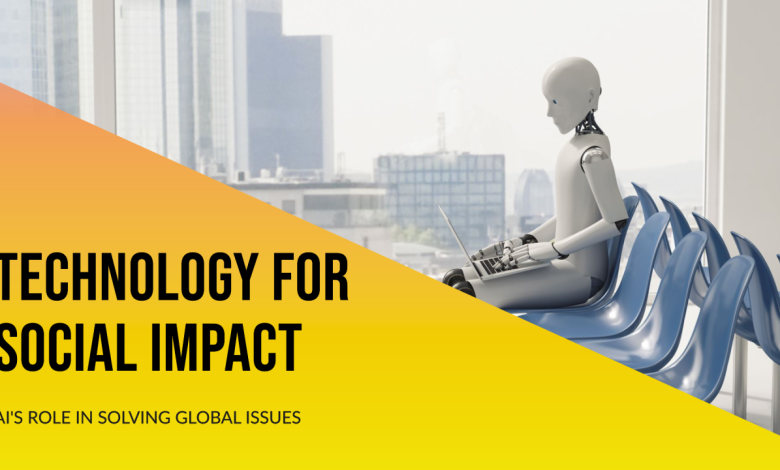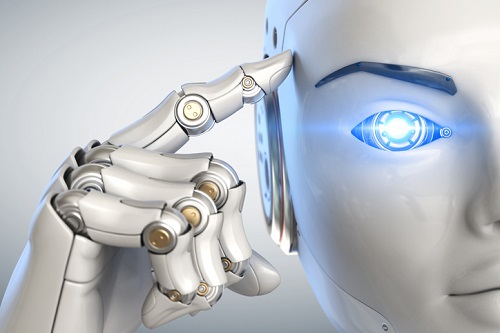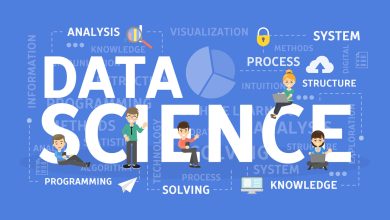Artificial Intelligence Tackling Global Challenges

What is AI Tackling Global Challenges?
Artificial intelligence (AI) is reshaping various industries. Its potential to solve complex global challenges is enormous. From climate change to healthcare, AI can provide innovative solutions. This article explores how AI tackles these challenges and the implications for the future.
Addressing Climate Change with AI
Climate change is one of the most pressing issues today. AI can play a significant role in mitigating its effects. For instance, AI algorithms analyze large datasets related to weather patterns. This analysis helps predict extreme weather events more accurately. As a result, communities can prepare better and reduce damage.
Additionally, Artificial Intelligence optimizes energy consumption. Smart grids use AI to balance energy loads. This technology ensures efficient energy distribution. By managing energy more effectively, we can reduce greenhouse gas emissions. AI can also help improve renewable energy sources. For example, AI can forecast solar and wind energy production, enhancing their reliability.
Enhancing Healthcare with AI
Healthcare is another area where AI shows great promise. AI can improve diagnostics and treatment plans. Machine learning algorithms analyze medical data to identify patterns. This analysis can lead to early detection of diseases, such as cancer. Early diagnosis significantly increases the chances of successful treatment.
Moreover, Artificial Intelligence can personalize patient care. By analyzing individual patient data, AI systems can recommend tailored treatment options. This personalization leads to better health outcomes. Additionally, AI can streamline administrative tasks, freeing up healthcare professionals to focus on patient care.

Combating Poverty and Inequality
Poverty and inequality are global challenges that require urgent attention. AI can help address these issues through data-driven solutions. For instance, Artificial Intelligence can analyze economic data to identify at-risk populations. By pinpointing these groups, governments and organizations can allocate resources more effectively.
Furthermore, AI can enhance education. Online learning platforms use AI to create personalized learning experiences. This approach helps students learn at their own pace, regardless of their socio-economic background. By improving access to quality education, AI can empower individuals and break the cycle of poverty.
Improving Disaster Response
Natural disasters pose significant challenges worldwide. AI can enhance disaster response efforts. For example, AI-powered drones can assess damage after a disaster strikes. They provide real-time data to first responders, allowing for quicker and more effective rescue operations.
Moreover, AI can improve early warning systems. By analyzing environmental data, AI can predict potential disasters like floods or earthquakes. This information allows communities to prepare and evacuate if necessary. Effective disaster response can save lives and reduce economic losses.
Supporting Sustainable Agriculture
Agriculture faces numerous challenges, including food security and environmental sustainability. AI can address these issues through precision farming. Farmers use AI to analyze soil conditions, weather forecasts, and crop health. This information helps optimize farming practices.
For example, AI can recommend the best times to plant and harvest crops. It can also suggest targeted irrigation strategies. By using resources more efficiently, farmers can increase yields while reducing waste. This approach is crucial for feeding a growing global population.
Promoting Economic Growth
AI has the potential to drive economic growth. By automating routine tasks, AI can increase productivity. Businesses can focus on innovation and growth rather than administrative tasks. This increased efficiency leads to cost savings and higher profit margins.
Moreover, AI can create new job opportunities. While some jobs may be displaced, new roles in AI development and maintenance will emerge. Investing in education and training programs is essential to prepare the workforce for these changes.
Ethical Considerations
As AI becomes more integrated into society, ethical considerations arise. Issues such as data privacy, bias, and job displacement must be addressed. Organizations must ensure that AI systems are transparent and fair. Implementing ethical guidelines can help mitigate potential risks associated with AI.
Moreover, collaboration between governments, businesses, and communities is vital. Open dialogue can foster understanding and address concerns. By working together, we can harness AI’s potential responsibly.
The Role of Policy and Regulation
Effective policy and regulation are crucial for the responsible use of AI. Governments must create frameworks that promote innovation while protecting citizens’ rights. This balance is essential for building public trust in AI technologies.
Additionally, international cooperation is necessary. Many global challenges require collaborative solutions. Sharing knowledge and resources can enhance AI’s effectiveness in tackling these issues. Countries should work together to establish global standards for AI development and deployment.

The Future of AI in Addressing Global Challenges
The future of AI in tackling global challenges is promising. As technology advances, AI’s capabilities will expand. This progress can lead to innovative solutions for complex problems. However, careful consideration of ethical and regulatory issues is essential.
Moreover, public awareness and education about AI are crucial. As more people understand AI’s potential, support for its applications will grow. Engaging communities in discussions about AI can foster a sense of ownership and responsibility.
Conclusion
AI is a powerful tool for addressing global challenges. From climate change to healthcare, its potential is vast. By harnessing AI’s capabilities, we can create innovative solutions that improve lives and promote sustainability.
However, we must approach AI responsibly. Ethical considerations, effective policies, and international cooperation are vital. Together, we can ensure that AI serves as a force for good, tackling the pressing issues of our time.




